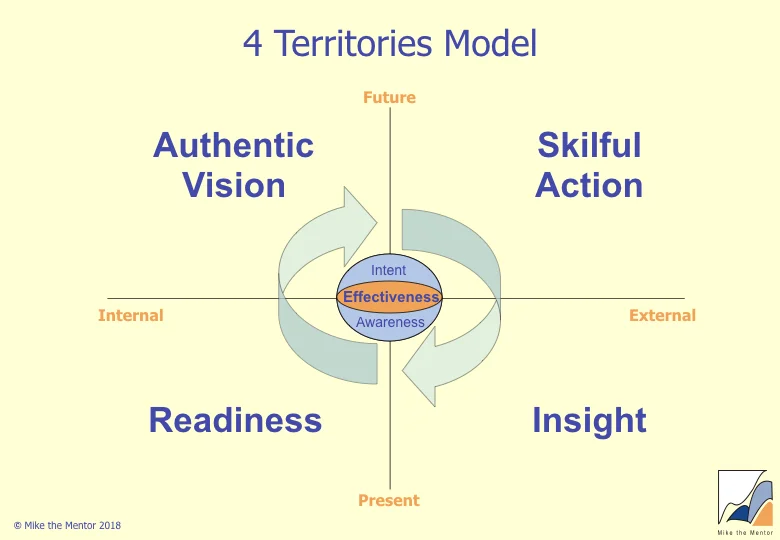Coaching on Purpose
/Being coached can be a challenging and stretching experience, inviting coachees to draw on and develop hidden personal resources and qualities. And it can be an exciting, stimulating journey of self discovery and development which opens up new opportunities for personal fulfillment and achievement. In either case it involves a journey into the unknown and into unfamiliar ways of being and doing; we may have to confront our fear of failure and, paradoxically, our fear of success; we may have to cast aside long held beliefs about who we are and what we are capable of; and we may have to resist strong pressure from family and colleagues to lapse back to our habitual ways. Thus to create and then sustain change in the face of the many forces which may pull us back, a powerfully motivating context is necessary. That context is Purpose.
Purpose
Your purpose expresses who you are, who you are becoming, and what contribution you can make. You have a sense of purpose when your life has a direction and meaning which you have chosen. (Purpose differs from Vision which is about what you want to create and achieve. You choose a Vision but discover your Purpose.)
When our lives, at home and at work, are aligned with our Purpose then our lives are meaningful and we connect to deep wells of energy within ourselves.
A prime reason why a sense of purpose is important is that it provides the strong container or context through which we can manage our inner experience of change. But to create that change we must be able to express that purpose in the world, that is, to be purposeful.
Developing Purpose
Using the 4 Territories Model helps identify the elements that need to be in place for coaching on purpose. These are Satisfying Needs, Uncovering Purpose, Being Purposeful, and Realising Purpose.
Satisfying Needs
Needs must be satisfied, or at least contained, for us to have a solid foundation to our lives. For this reason, coaching on purpose will often start in this quadrant of the model.
When we are driven by our needs (eg, for appreciation, self-worth, security, love, success) it is difficult to express and live by our purpose because our energy and attention are devoted to getting our needs met. In developing a sense of our purpose, it is therefore important to determine whether our behaviour is being driven by our needs. If it is then we must find ways to get those needs satisfied, ideally once and for all, so that their fulfillment no longer gets in the way of our purpose. So, for example, we may be a team-leader and have a strong need to belong. If we try to get our belonging needs met from the team when we are supposed to be challenging its members to new levels of performance, we are likely to fail both to provide the leadership the team requires and to get our own needs met. More appropriate ways of getting this need met must be found.
Sometimes, mere awareness that a need is being met in inappropriate ways is sufficient to enable people to drop the pattern. But when the need's function has been to protect the individual from the challenge of embracing their sense of purpose and then more wide ranging work is required.
Uncovering Purpose
As we release ourselves from the hold of our needs, so we create the opportunity for our sense of purpose to begin to emerge more fully into our lives. This emergence can be facilitated by looking at the course of our lives, distinguishing the themes and patterns, becoming aware of what is unfolding, noticing the qualities of those times when we have felt most alive, recalling what it was we especially enjoyed as a six year old, considering the Tombstone Test ("What would you like your epitaph to be?"), and by other explorations of the wider context of our lives.
Steve Jobs, trying to lure John Sculley, then CEO of PepsiCo, to Apple famously and ultimately successfully evoked Sculley's sense of purpose by asking:
"Do you want to spend the rest of your life selling sugared water or do you want a chance to change the world?" (Odyssey: Pepsi to Apple)
A more analytical approach to working with both Purpose and Needs is to work with value priorities. This can be a particularly effective way to identify those values which are just emerging into our lives and which point us towards our unfolding purpose.
Being Purposeful
A sense of purpose does not necessarily lead to purposeful behaviour. Purpose is passive; purposefulness is active and emerges out of a process in which we express ourselves through what we do. Connecting our sense of purpose to the actions we take involves clarifying our values, developing our intention, deliberating on the possible ways of realising our purpose, choosing one or more, affirming the choice, formulating plans, and finally acting.
In being purposeful, we must mobilise our mind and our feelings: at the intellectual level our sense of purpose provides a powerful reason for making the changes; and at the emotional level our purposefulness provides the motive force to bring our purpose into existence.
We are being purposeful when we are embodying our purpose, that is when we are expressing our purpose in the moment rather than working towards achieving it in the future. Purposefulness can also be described as willfulness (in its sense of 'full of Will') and has the following qualities:
energy, dynamic power, intensity
mastery, control, discipline
concentration, attention, focus
determination, decisiveness, resoluteness, promptness
persistence, endurance, patience
initiative, courage, daring
organisation, integration, synthesis (from The Act of Will by Roberto Assagioli)
Bringing Purpose into the present requires the ability to be present - or to have Presence. Put simply:
Purpose + Presence = Purposefulness
Presence is the ability to be with another person with such inner self-knowledge that the other person is able to ponder the depths of who he or she is with awareness and clarity. It is the single most important skill the coach requires. Marianne Williamson describes presence rather more poetically:
"We are all born to shine, as children do. We were born to make manifest the glory of god that is within us. It's not just in some of us; it's in everyone. And as we let our own light shine, we unconsciously give other people permission to do the same. As we are liberated from our own fear, our presence automatically liberates others."
Realising Purpose
Once we are taking purposeful action we must ensure that this is creating the outcomes we seek to achieve. To do this we have to learn to perceive clearly our impact on our environment (eg, organisation, family, team) and be able to sense the intricate web of connections in which we exist, and to see the whole as well as the parts.
We have to develop the ability to sustain our new behaviours and ways of being, to develop new habits, to learn from our experience, and to be sensitive to what we are creating. These are systems skills and they emerge most fully when our instrumental, interpersonal and imaginal skills become integrated. In essence they involve a shift from seeing a world made up of things to seeing a world that's open and primarily made up of relationships.
Conclusion
Living our purpose consistently is a profound challenge. It requires high levels of self-awareness, a firm commitment, a strong sense of our own self-worth, a willingness to take risks,and the emotional discipline to travel outside our comfort zone. In essence it requires that we develop the skills of self-leadership. The role of the coach in this is to help the coachee continually deepen their understanding of reality, develop their sense of self, learn to listen for what is emerging, and to encourage them to live their purpose.

